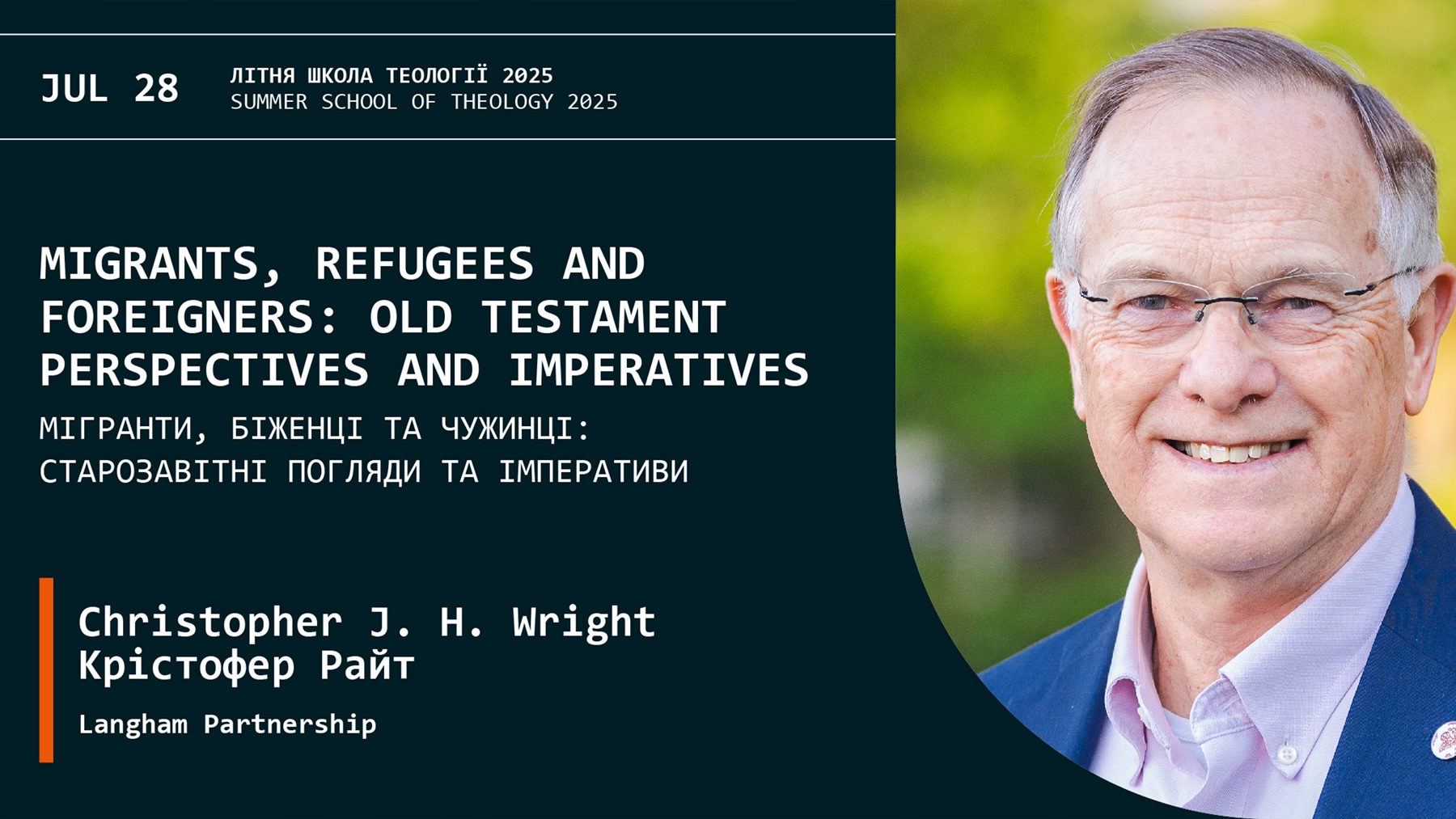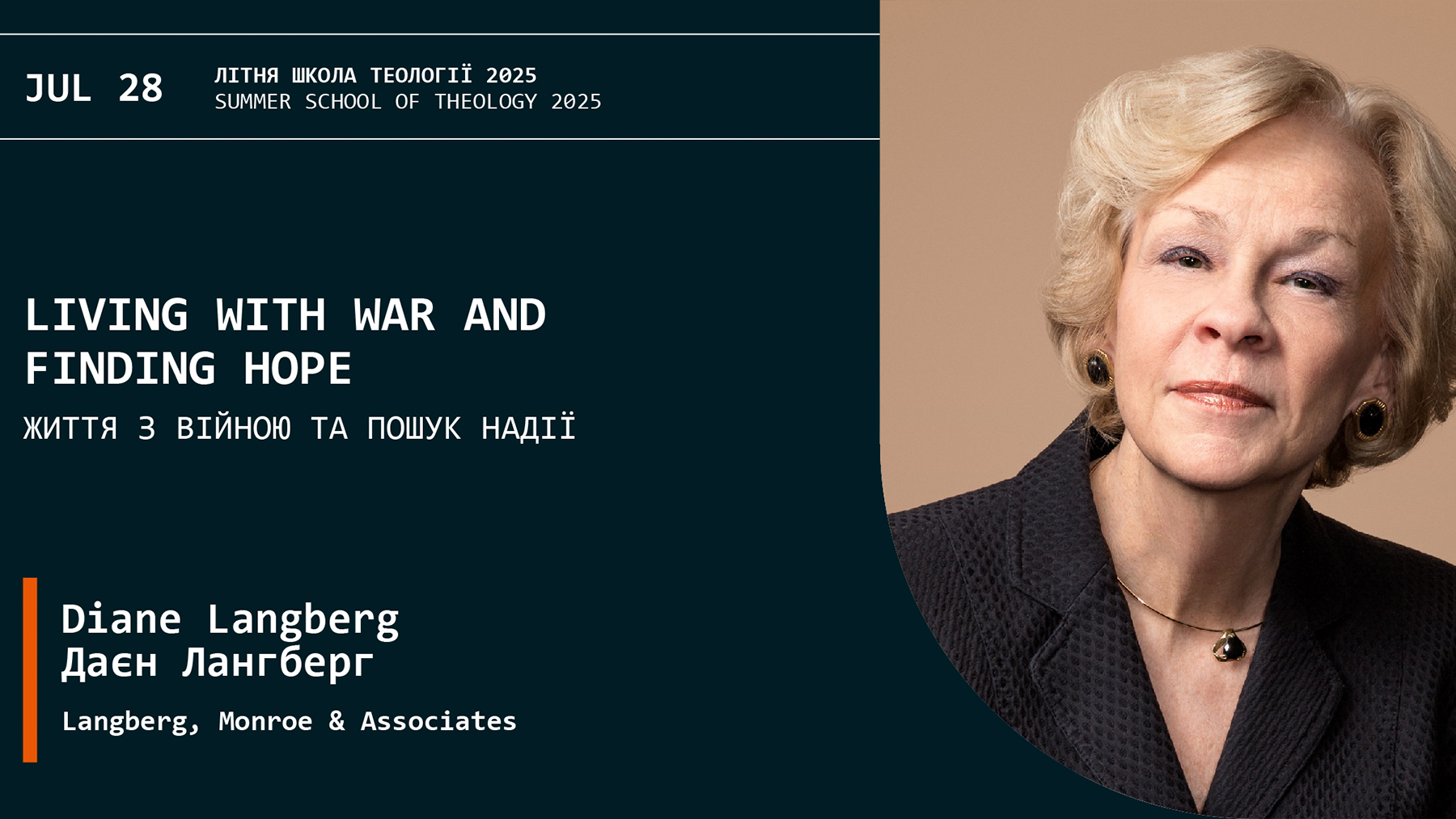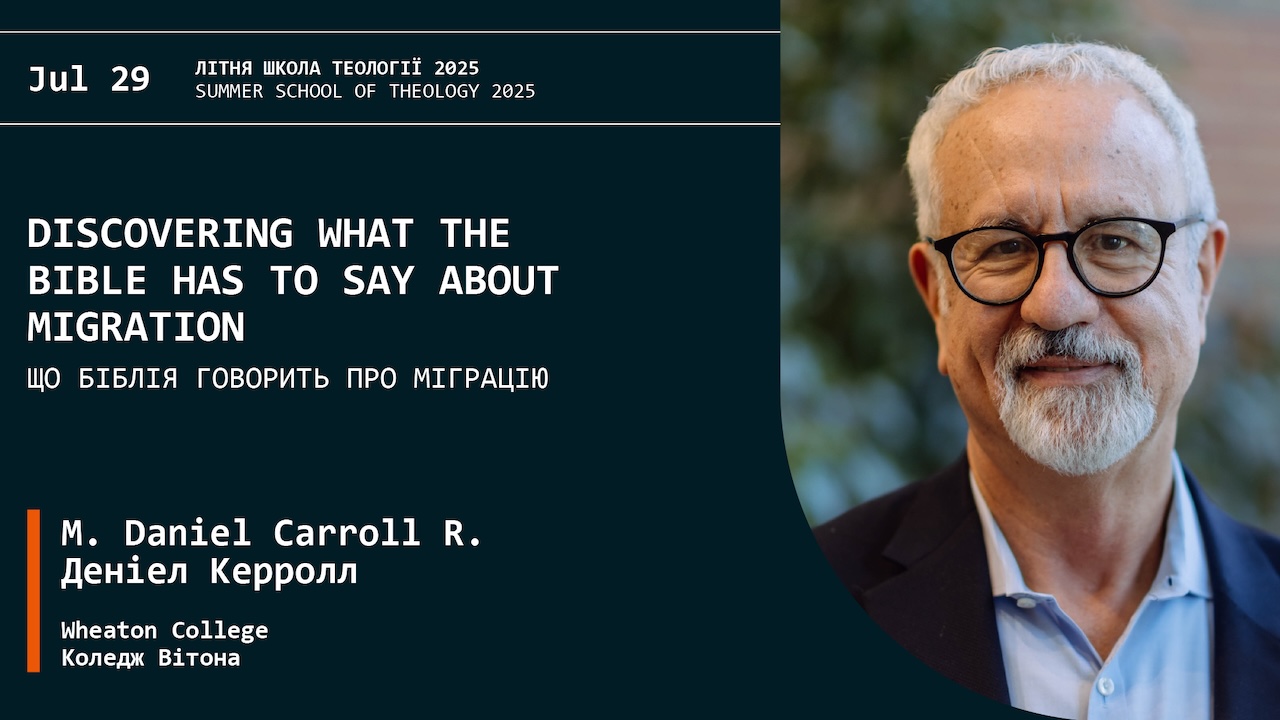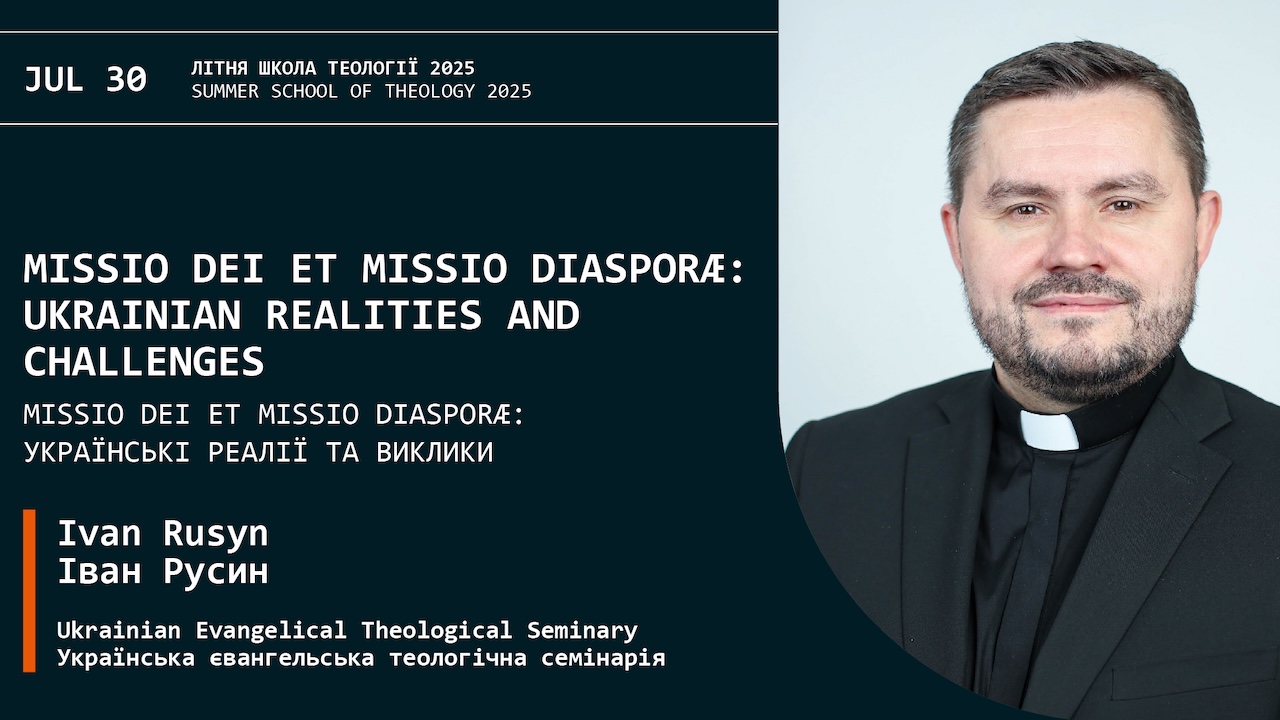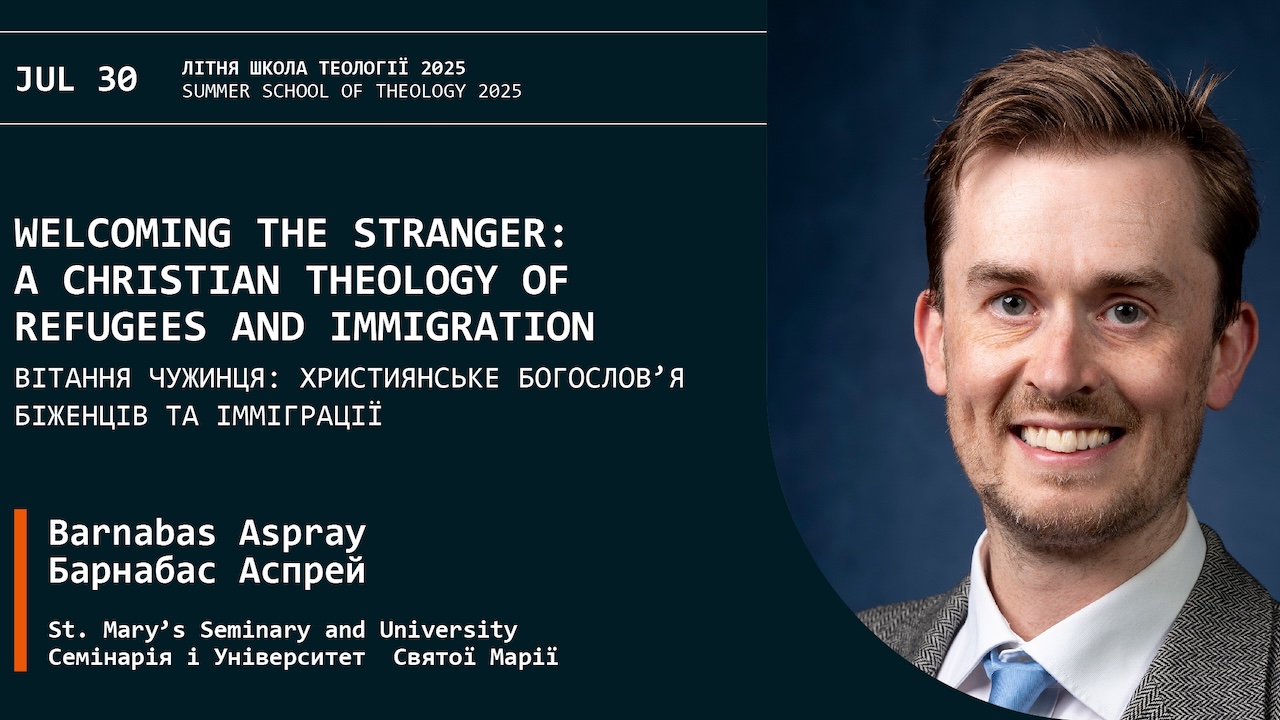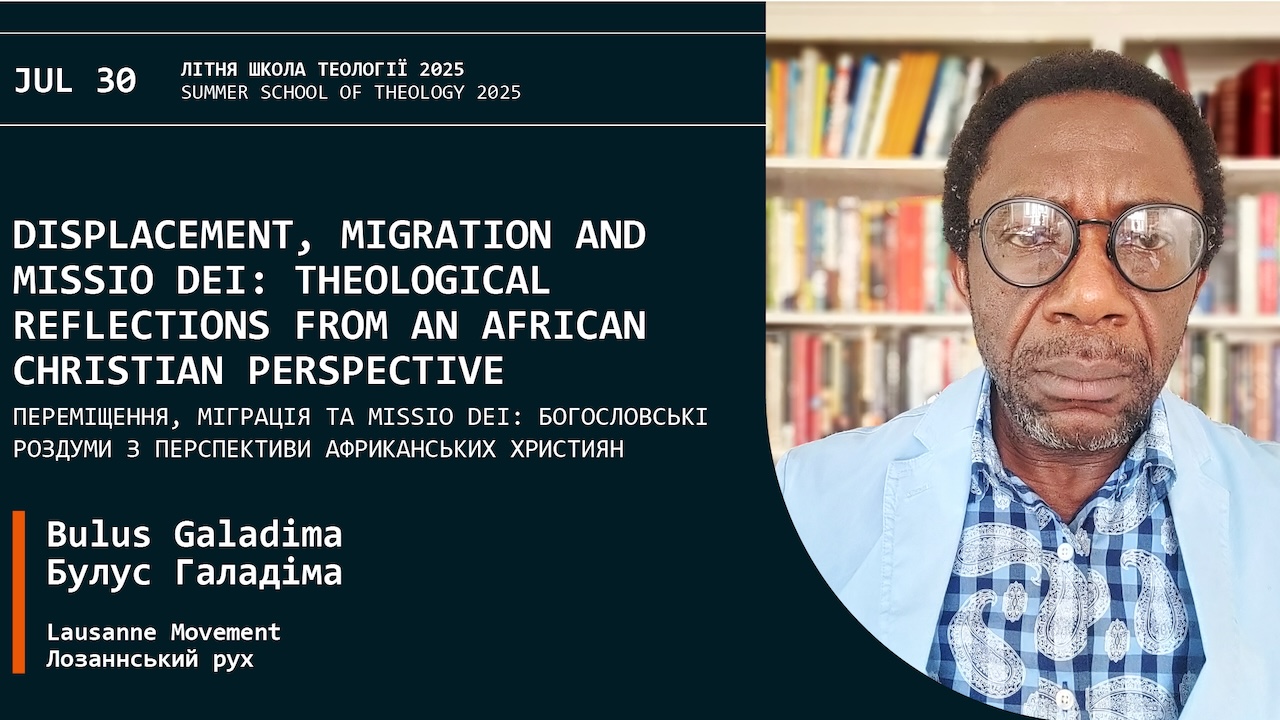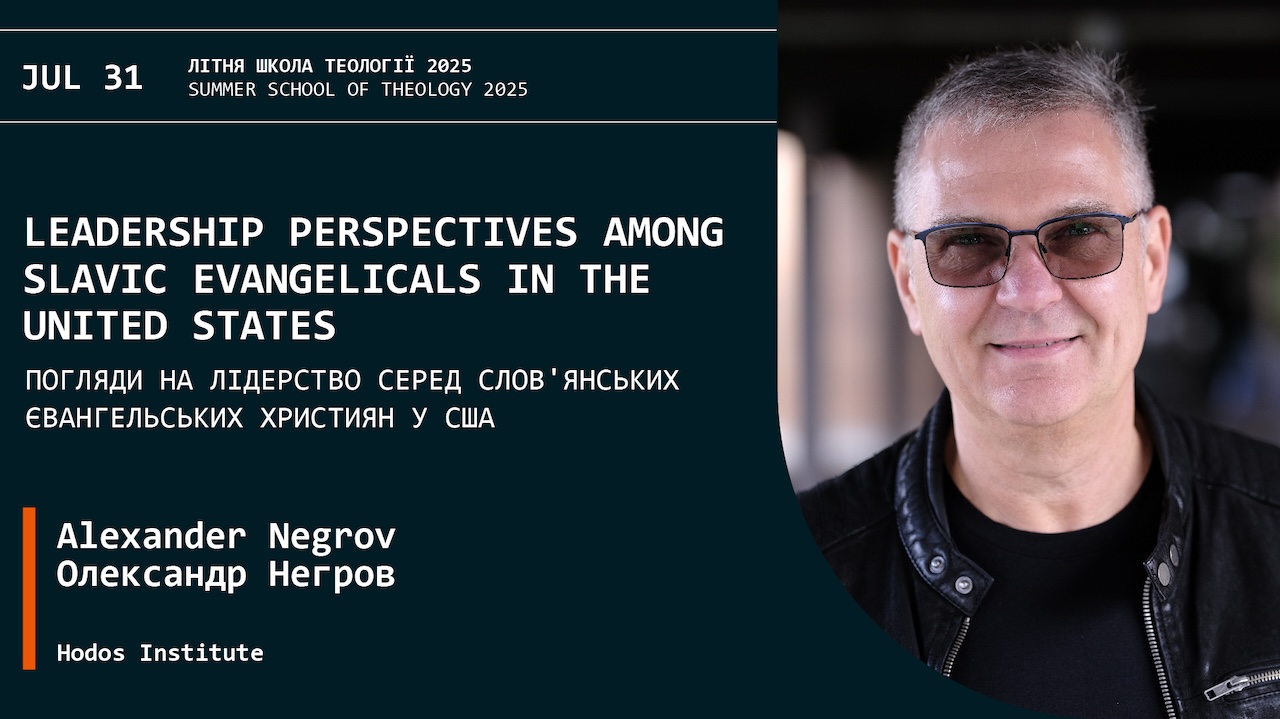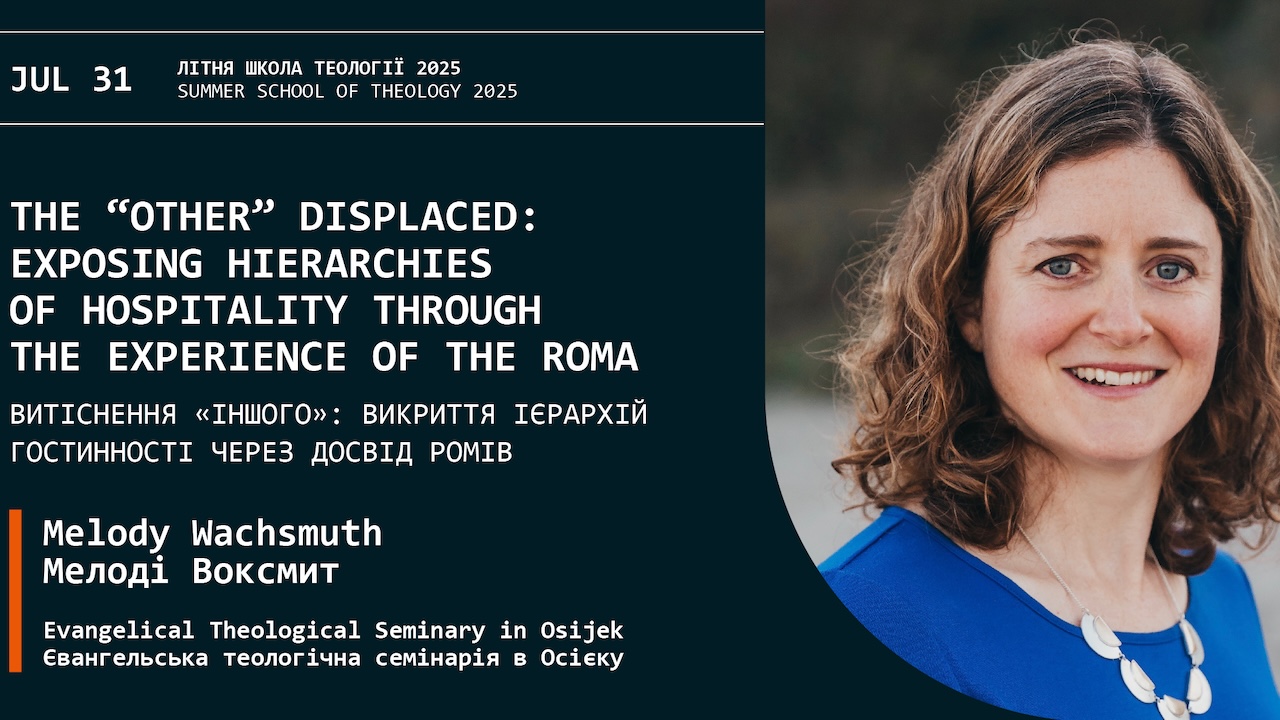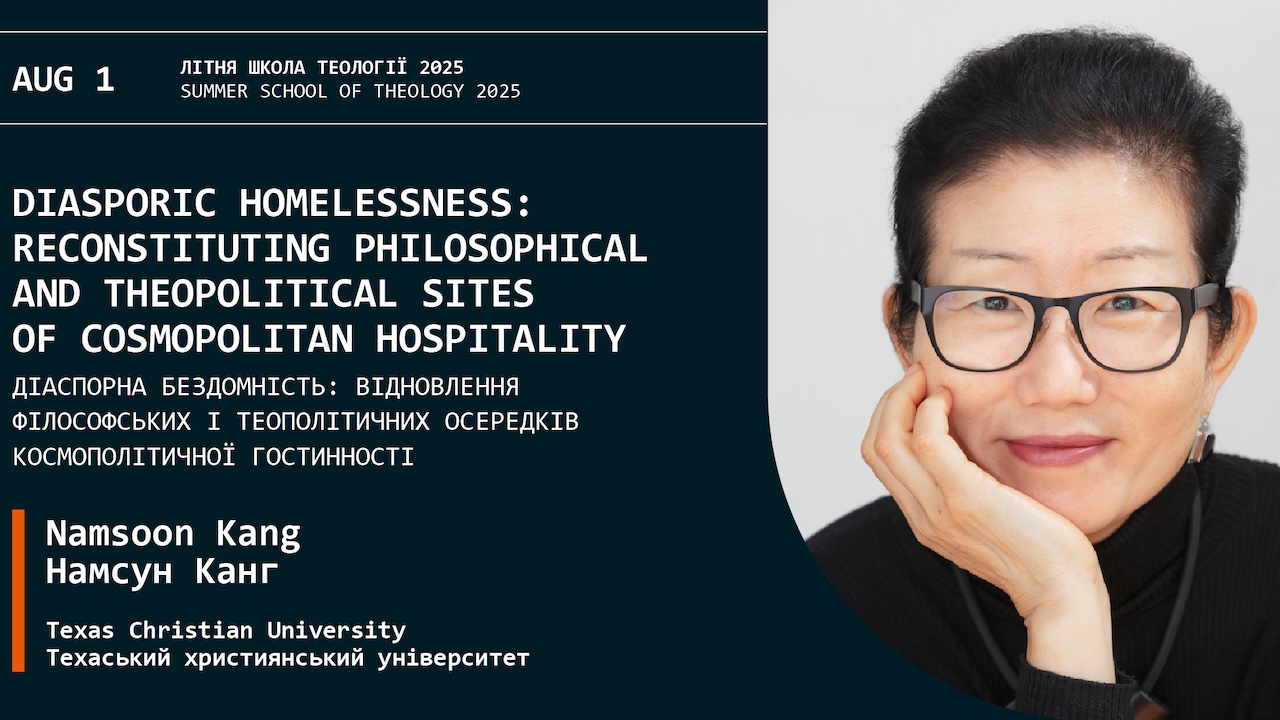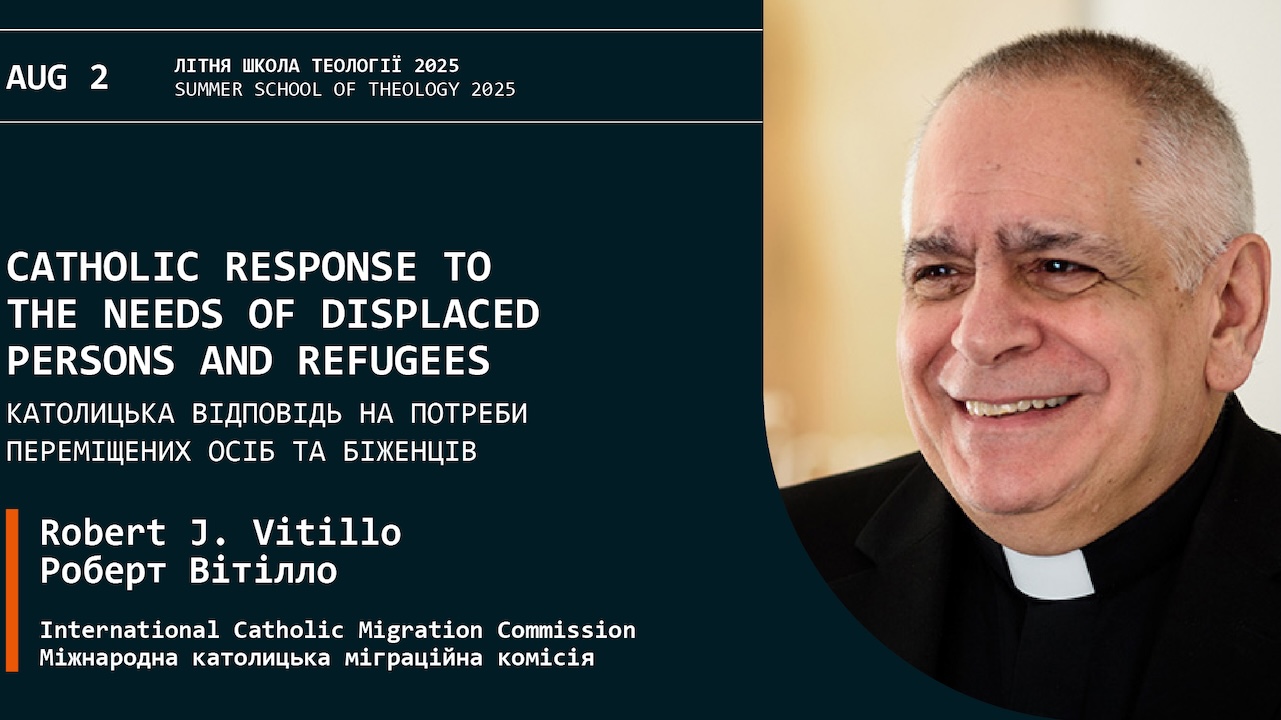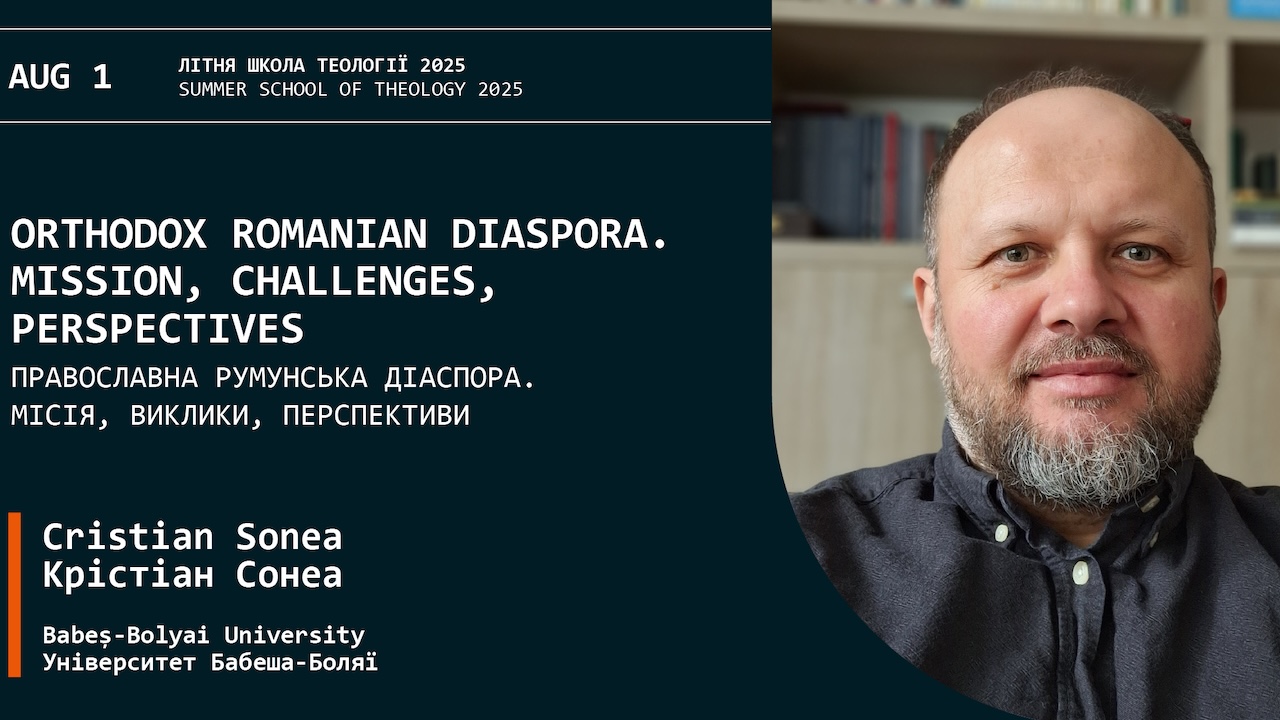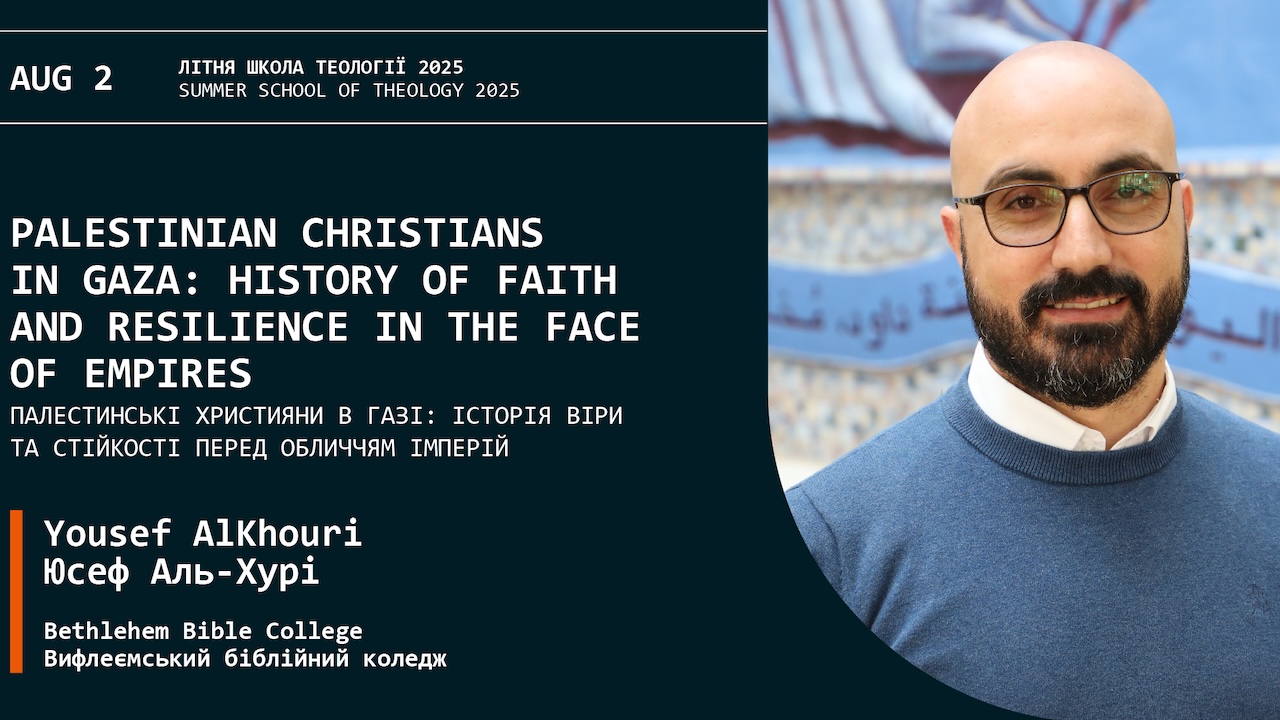World with Broken Borders: Theological Perspectives on Displacement and Diasporas
Світ зруйнованих кордонів: богословські погляди на вимушене переміщення та діаспору
28.07-2.08
Zoom
The reality of refugees and displaced persons is an unrelenting woe in the modern world. Almost every country in the 21st century faces the challenges of migration in one way or another: as a country that people leave or as a country that receives others. Russia’s war against Ukraine brought to us, among other injustices, the agonizing heartache of the experience of displacement. Since its outbreak – the annexation of Crimea and the armed conflict in eastern parts of Ukraine in 2014 – approximately 1.5 million Ukrainians have been forced to flee their homes in search of new refuge within the country, with only a small number considering seeking refuge outside of it. With the outbreak of full-scale war and the invasion of the northern and southern regions of Ukraine by Russian troops, the number of displaced persons and refugees has increased dramatically – around 4 million displaced persons within the country and 6 million refugees. The trauma of displacement can take different forms: sometimes people leave their homes without realising that their home is lost forever and therefore live in the hope of returning, and sometimes they leave after their home has lost its symbolic meaning and security function. Day by day, with each Russian shelling, there is a growing number of abandoned homes – everything from houses to cities, especially those near the frontline. Every day, a dwelling place loses its sacred meaning of attachment, becoming a perilous no man’s land. That is why people go in search of a new home.
The stories of refugees and IDPs are another face of wars, armed conflicts, environmental disasters, poor living conditions in countries, and persecution based on ethnic, religious, political, and other views. Often, refugeeism becomes a topic of research not only for psychologists, psychotherapists, and sociologists, but also for political experts.
Refugees become the focus of attention of global human rights organisations and the media, although the latter often reduce this discourse to political disputes that trigger emotional reactions in society. Politicisation of discourses leads to distortion and mythologisation of refugee representation both abroad and within countries: from discourses about criminal foreigners to discourses about migrants as a stepping stone to economic progress and cultural renewal of the host country.
The simplification and politicisation of the topic of refugees often has an impact on religious communities, hospitality practices, and ecumenical dialogues. Migration theology emerges against the backdrop of misleading views on migrants and challenges anti-migrant narratives that are also circulating among religious communities, including Christian. Although the theme of refugee and forced migration is inseparable from the biblical narrative, diaspora/migration theology is a relatively young academic discipline. But given that migration affects so many aspects of life and society on a global scale and is a present, heartrending sorrow in Ukrainian society, the 2025 Summer School of Theology aims to address these challenges and to consider various interdisciplinary approaches to exploring the ideas and perspectives of migration theology. This summer, we will come together to consider how such a theology can help us to cultivate compassion and respect for those who have been forced to leave their homes (for whatever reason), understanding the different aspects of the experience of displacement, and nurturing a sense of responsibility towards both the host and the hosted.
Featured Speakers 2025
The Summer School of Theology will host theologians, philosophers, religious scholars of various Christian traditions, as well as representatives of various religious movements, public personas, and cultural influencers.
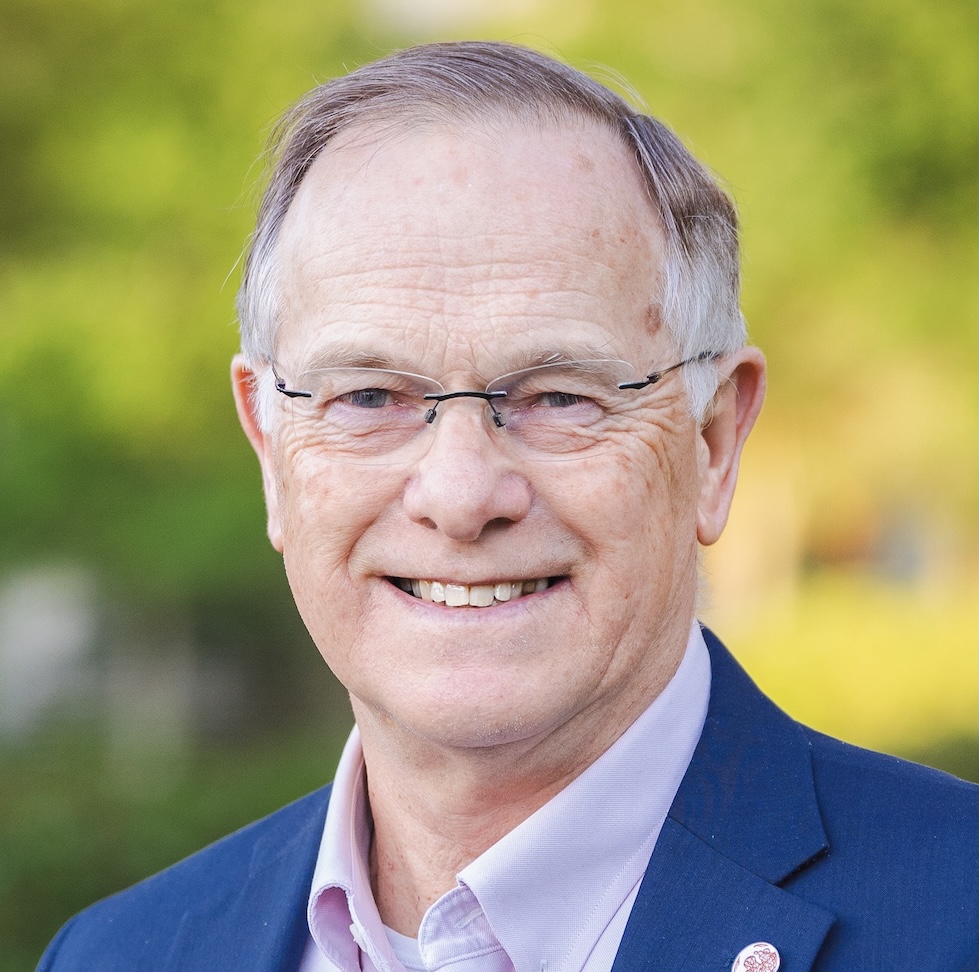
Chris J. H. Wright
Mission theologian, an Anglican clergyman, and an Old Testament scholar. He studied for his PhD (in Theology) at Cambridge University in Cambridge, England. Dr. Wright currently serves as an International Ambassador for the Langham Partnership. He is the author of a number of commentaries on the Old Testament books and books on theology, including The Mission of God: Unlocking the Bible's Grand Narrative.
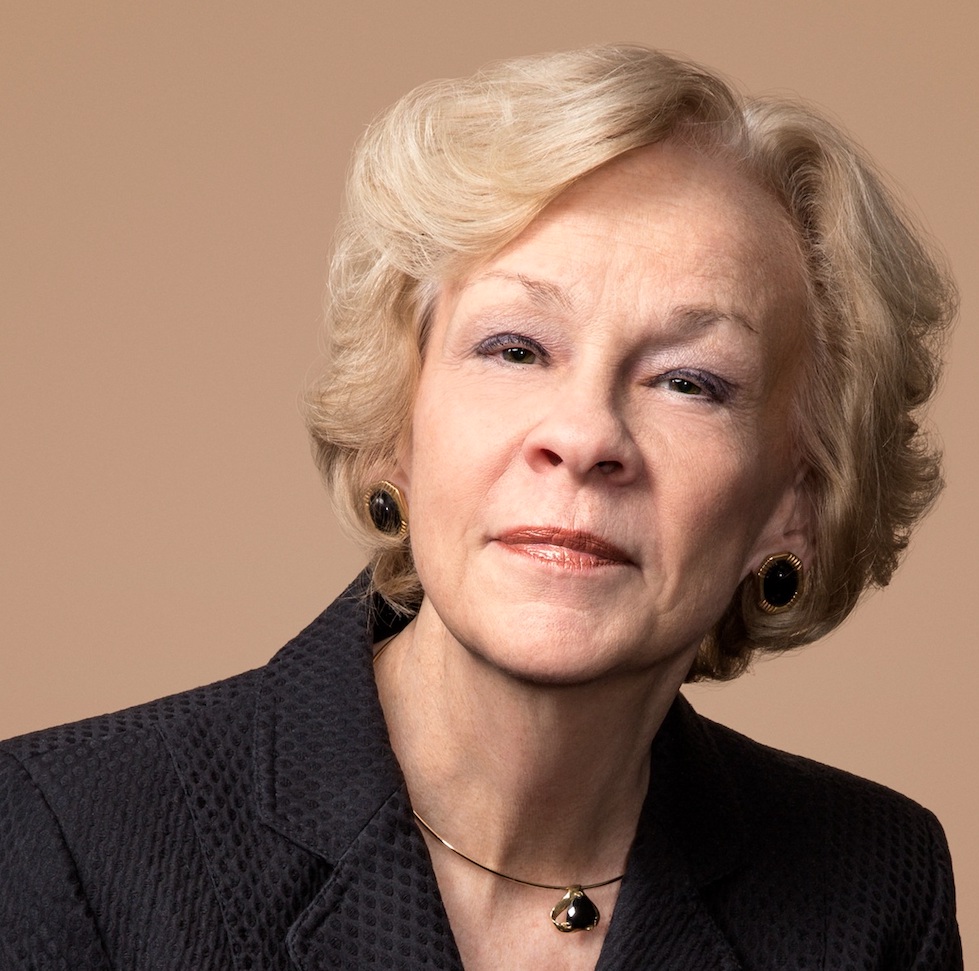
Diane Langberg
Globally recognized psychologist with 54 years of clinical experience working with trauma patients. She has trained caregivers from six continents in responding to trauma and to the abuse of power. For 29 years she directed her own practice in Jenkintown, PA – Diane Langberg Ph.D. & Associates. Now, in partnership with Dr. Phil Monroe, Langberg, Monroe & Associates continues this work which includes seventeen therapists with multiple specialties.
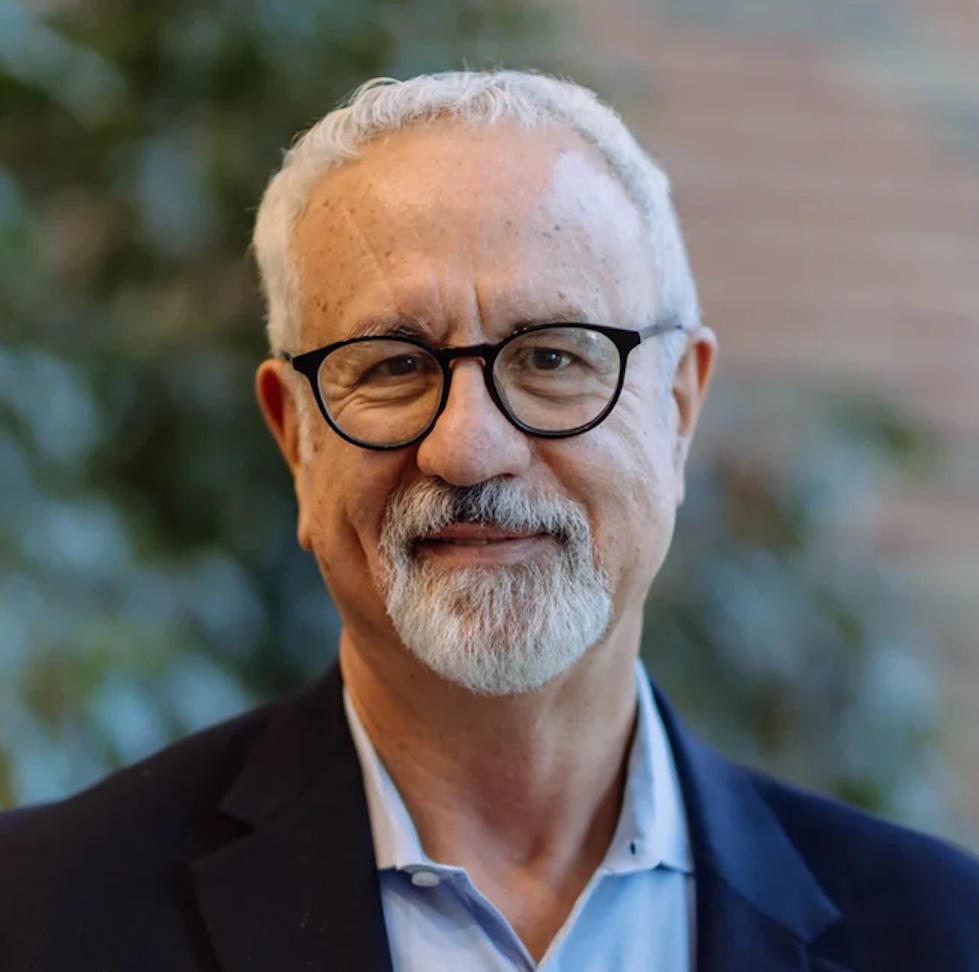
M. Daniel Carroll R.
Scripture Press Ministries Professor of Biblical Studies and Pedagogy in the Wheaton College graduate school, where he has taught Old Testament since 2016. Dr Carroll is half-Guatemalan and was raised bilingual and bicultural. For many years, he was a professor in Guatemala City. Upon returning to the US and before coming to Wheaton, he taught at Denver Seminary for 20 years. His PhD is from the University of Sheffield in the UK. He has authored or edited 19 books, several of which are on the Bible and migration.
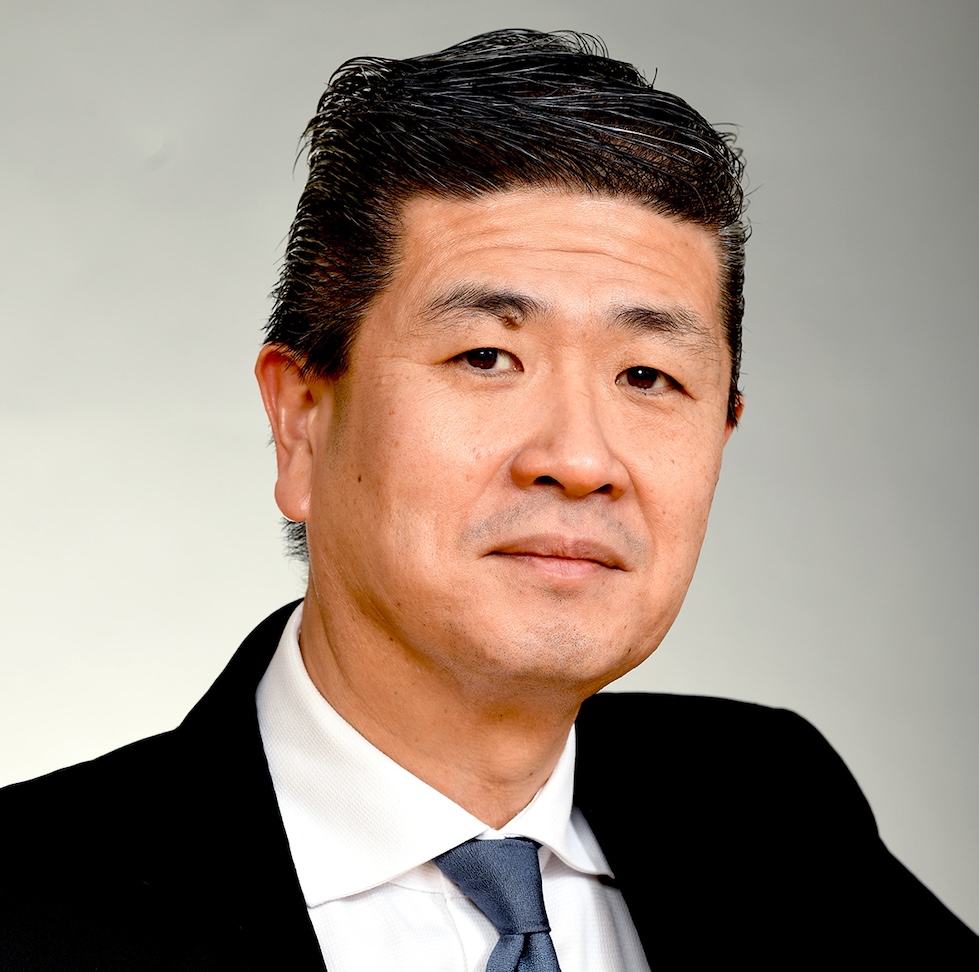
John Ahn
Associate Professor of Hebrew Bible at Howard University. Dr. Ahn is trained in ancient Near Eastern and Religious Studies. He holds the PhD in Religious Studies (Hebrew Bible/Old Testament), Yale University. Dr. Ahn was president of the Mid-Atlantic Society of Biblical Literature (SBL) (2021-2022). He also served as the section review leader for Daniel and the Book of the Twelve (Minor Prophets)—NRSV-Updated Edition.
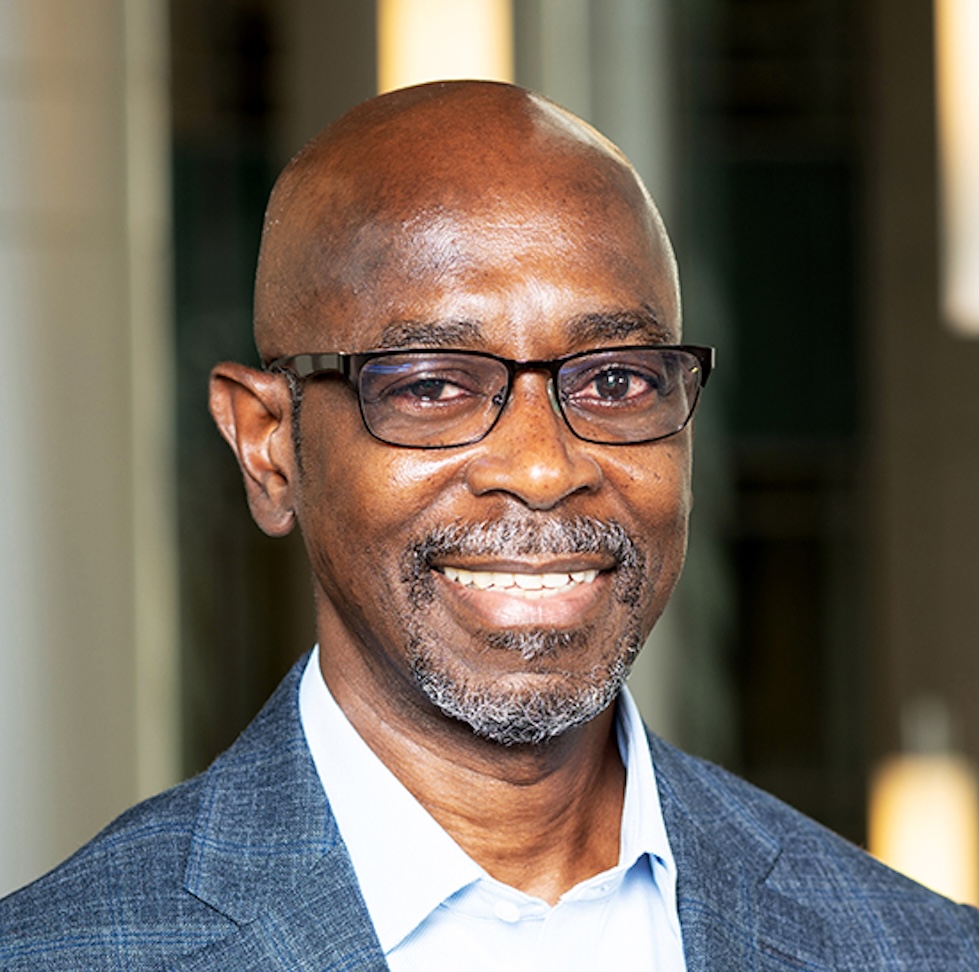
Jehu J. Hanciles
D.W. and Ruth Brooks Professor of World Christianity and Director of World Christianity program at Candler School of Theology of Emory University. Dr Hanciles has lived and worked in Sierra Leone, Scotland, Zimbabwe, and the USA. His latest research surveys the history of global Christian expansion through the lens of migration, and his latest book is titled Migration and the Making of Global Christianity (Eerdmans). He serves as associate editor of Missiology, one of the premier scholarly journals of mission studies, and on the editorial advisory committee for Baylor University Press’s Studies in World Christianity.
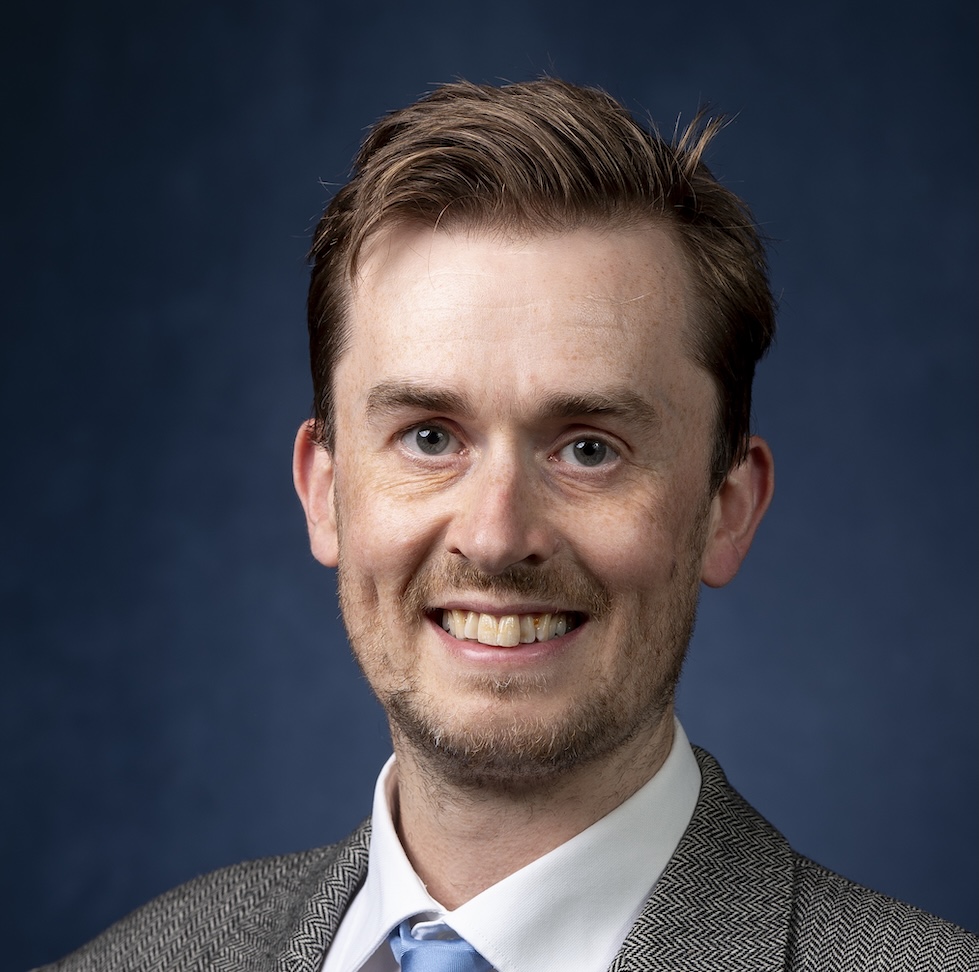
Barnabas Aspray
Assistant Professor of Systematic Theology at St. Mary’s Seminary and University, Baltimore, USA. Dr. Aspray holds the PhD in Philosophy of Religion, Cambridge University. He is author of Ricœur at the Limits of Philosophy: God, Creation, and Evil (CUP, 2022). His current research project is on Christian responses to refugees and immigration. A coauthored interreligious monograph, On the Significance of Religion for Immigration Policy, will be published later this year as part of series “Religion Matters” (Routledge).
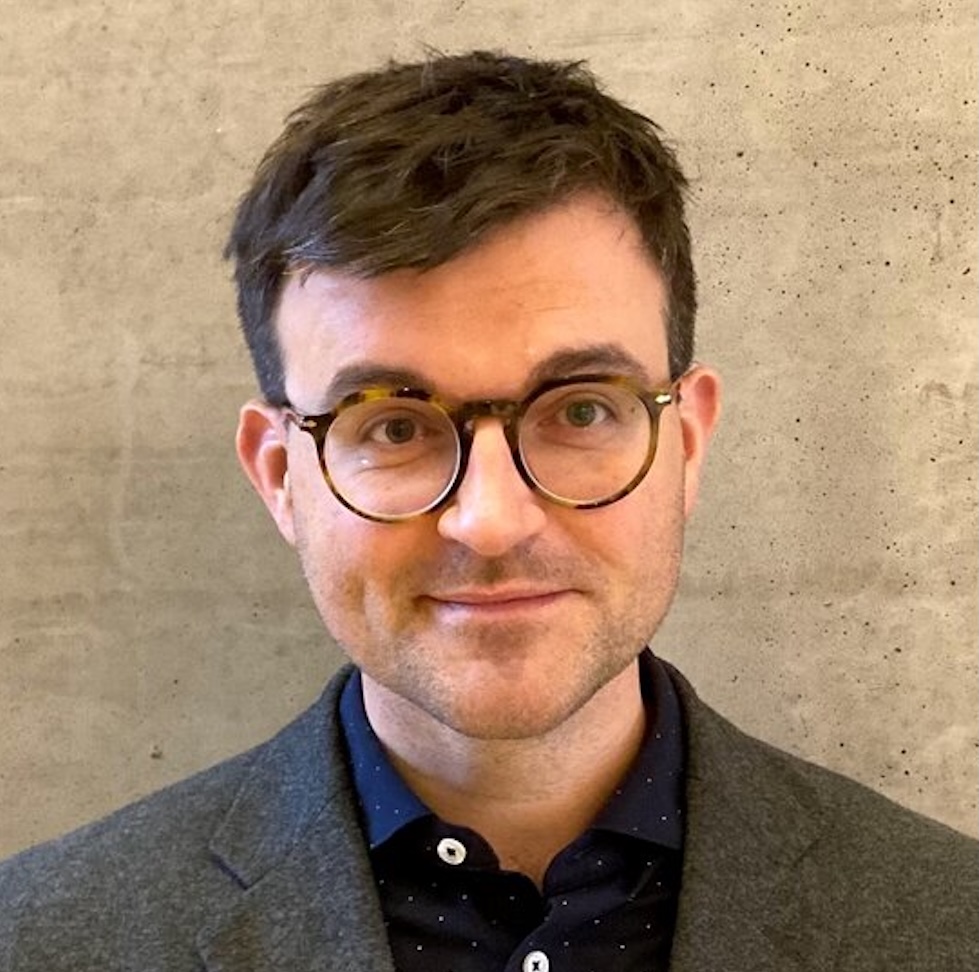
Ulrich Schmiedel
Professor of Global Christianities at Lund University in Sweden. Specializing in public and political theology, he has written widely on religion in the public square. Currently, he is leading a five-year research project on “Faith-Based Refugee Relief in Europe: Connecting the Empirical and the Ethical”, funded by the European Research Council. Author and co-author of a number of books, including Living in A World of Neighbours: Activists and Academics in Conversation about Multi-Faith Refugee Relief (2025).
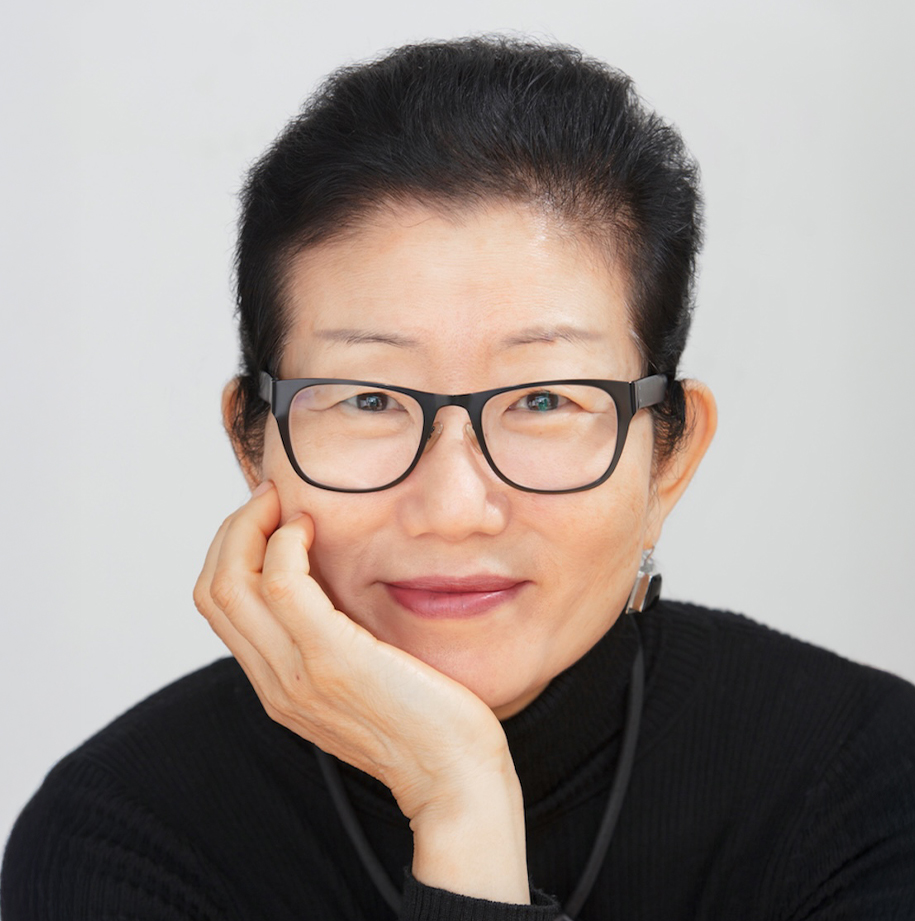
Namsoon Kang
Professor of Theology and Religion at Brite Divinity School, Texas Christian University. She previously taught on the Faculty of Divinity at the University of Cambridge, UK and Methodist Theological University in Seoul, South Korea. Teaching, researching, and writing from transdisciplinary spaces, her particular theoretical interests are in discourses of cosmopolitanism, apophatic theology/philosophy, postmodernism, postcolonialism, feminism, and diaspora. Her writing engages recent theories of cosmopolitan rights, justice, and hospitality, especially those of Immanuel Kant, Hannah Arendt, and Jacques Derrida.
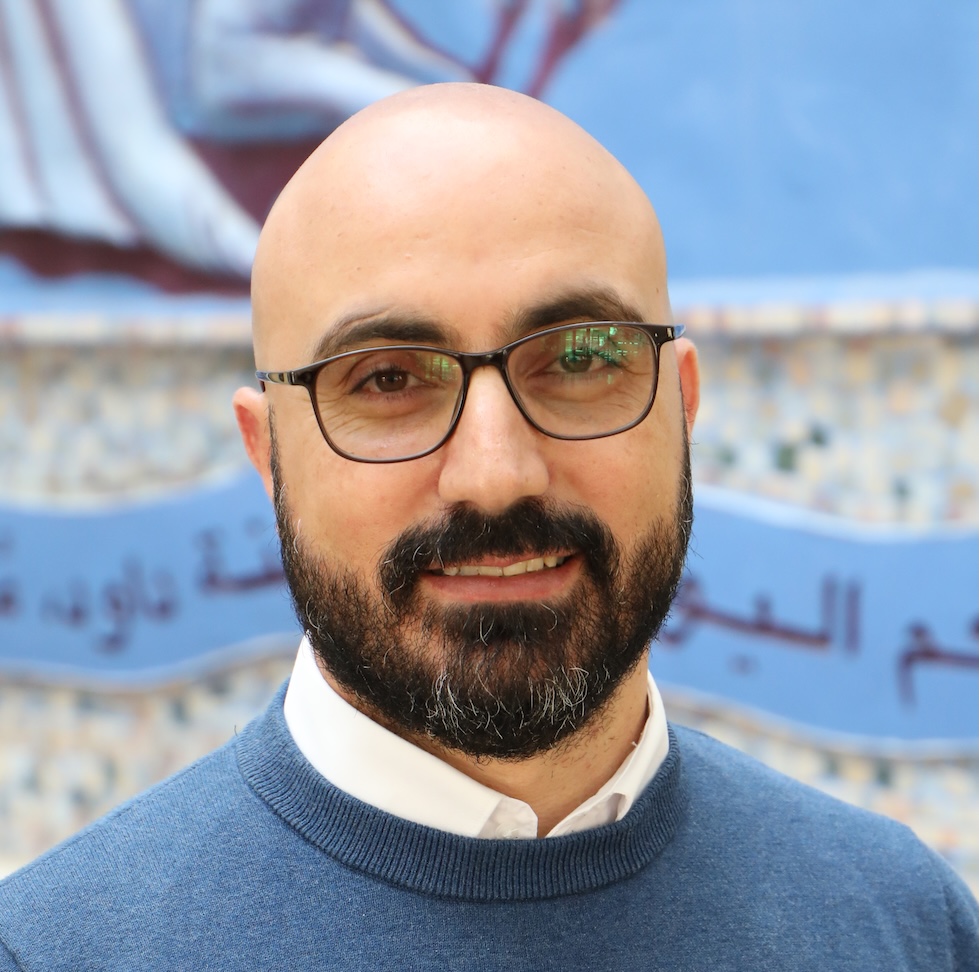
Yousef AlKhouri
Christian Arab Palestinian theologian and activist from Gaza. Dr. AlKhouri is the Academic Dean of Bethlehem Bible College and is a member of the steering committee of Christ at the Checkpoint and the board of Kairos Palestine. He holds PhD from the Vrije Universiteit Amsterdam. He has published widely in Arabic and English on Palestinian theology and Christianity. His recent work, “Which Gospel? The Militarization of Sacred Texts in the Context of Israel’s Genocide in Gaza,” explores the weaponization of scripture in colonial contexts.
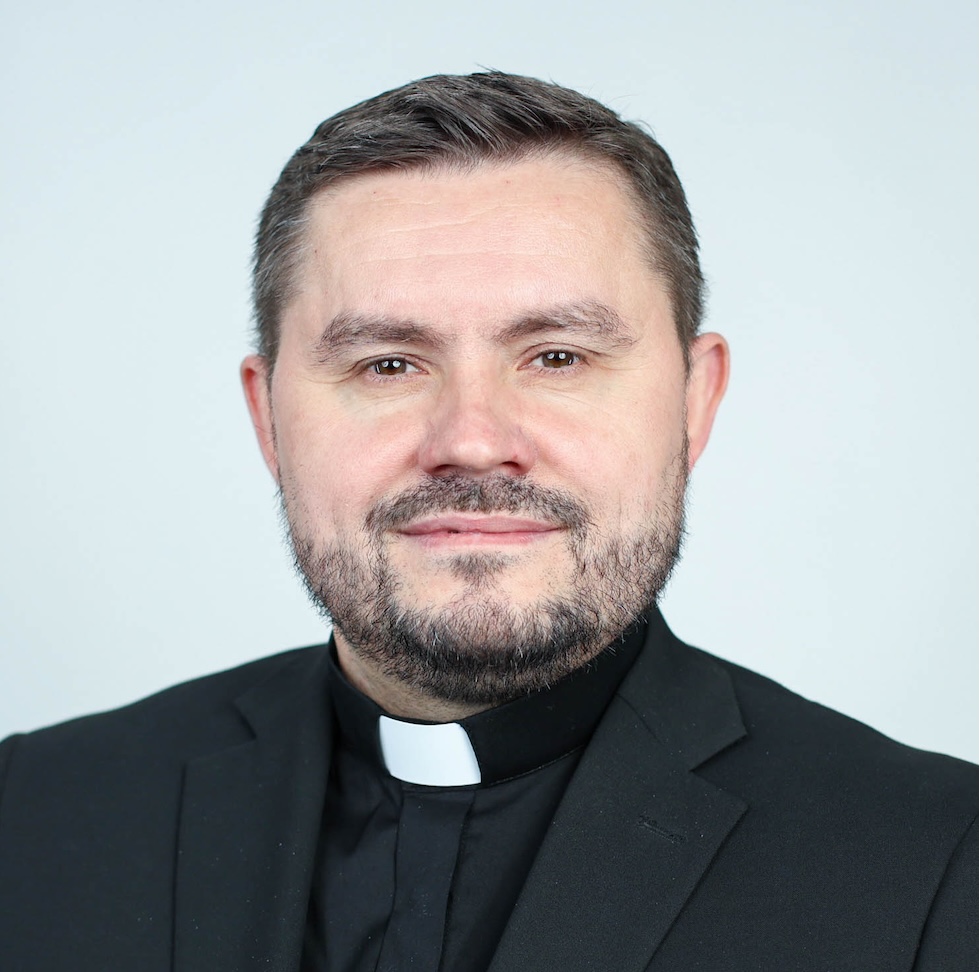
Ivan Rusyn
Rector of the Ukrainian Evangelical Theological Seminary and Deputy Senior Bishop of the Ukrainian Evangelical Church. Dr Rusyn holds a Master of Theology in Contextual Missiology from the University of Wales in the United Kingdom, and PhD in Theology from Drahomanov National Pedagogical University. His research interests include theology of mission, theory and practice of mission, religious studies, theology of religion, and interreligious and intercultural dialogues.
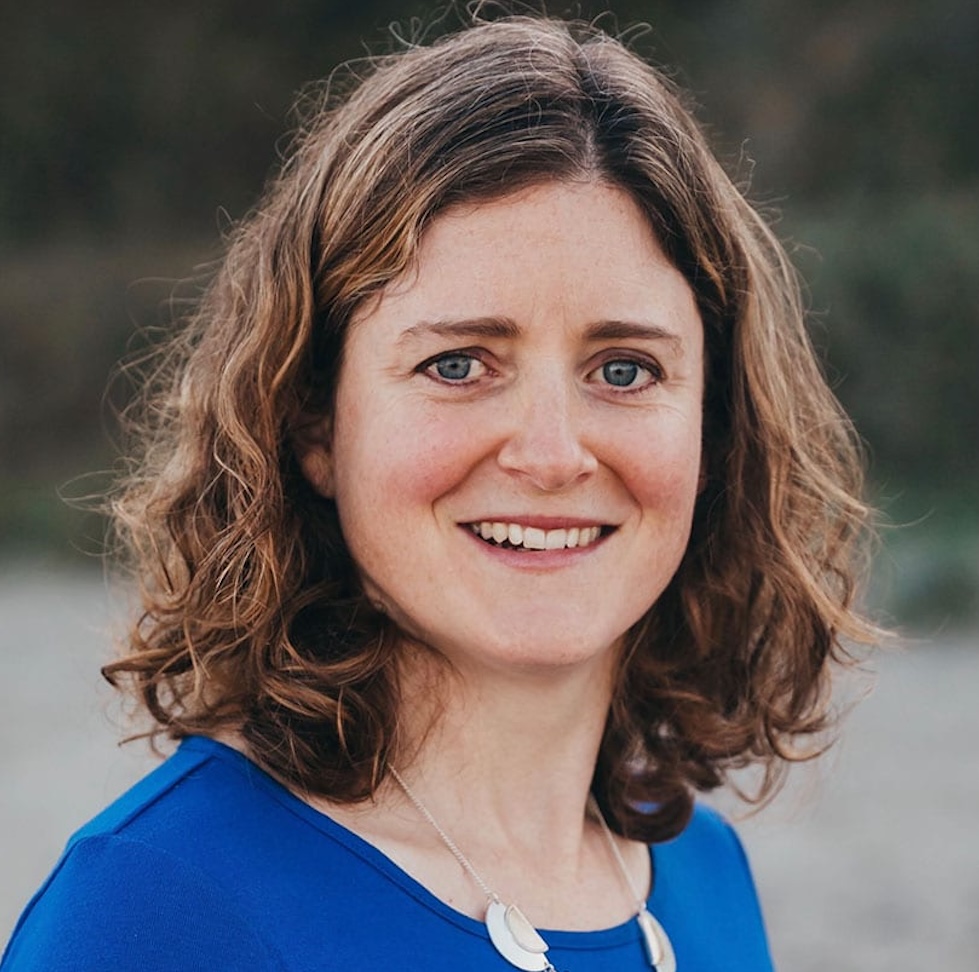
Melody Wachsmuth
Lecturer at the Evangelical Theological Seminary in Osijek, Croatia as well as a lecturer and board member of the Roma Bible School in Southeastern Europe and Germany. Her research interests include mission, culture and gospel, and eco-theology and creation care. She has also written extensively on issues related to the Roma people in Central and Eastern. She is the author of Roma Pentecostals Narrating Identity, Trauma, and Renewal in Croatia and Serbia (Brill, 2023).
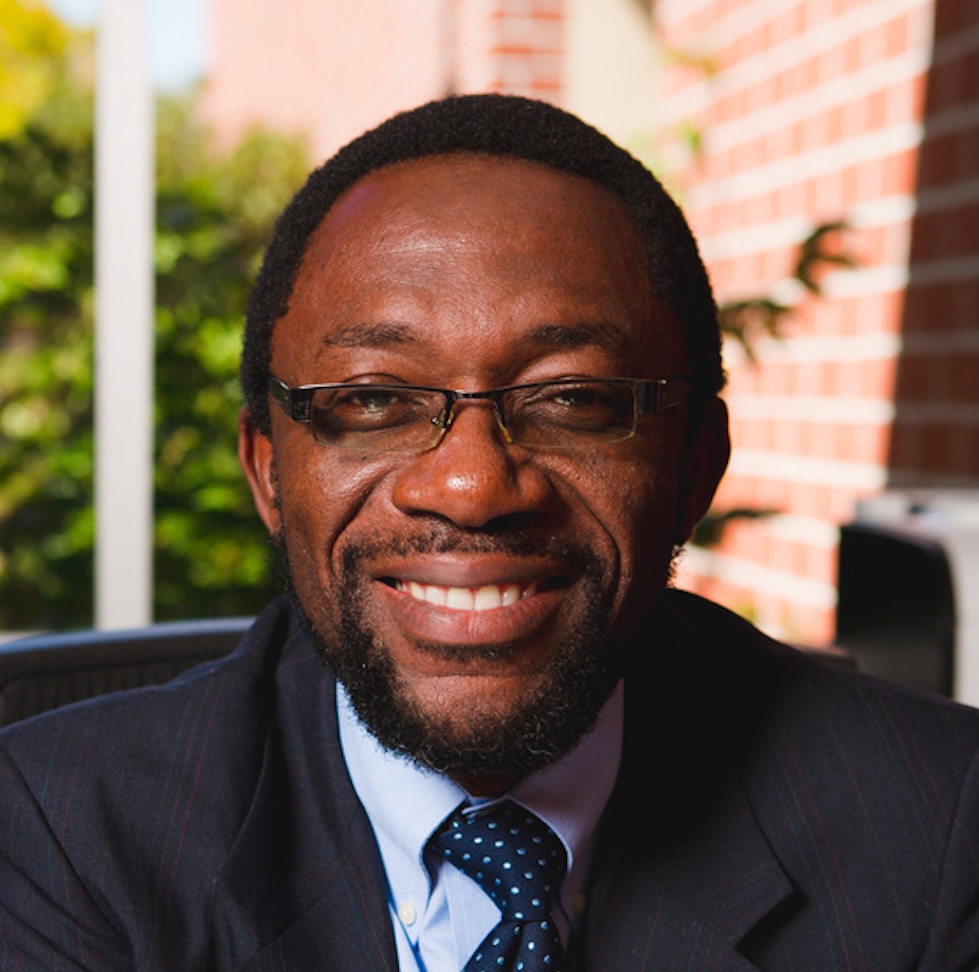
Bulus Galadima
Professor of Historical Theology and Philosophy. Dr Bulus was formerly President of Jos ECWA Theological Seminary in Nigeria and later the Dean of the Cook School of Intercultural Studies at Biola University in California. He is currently a Co-Catalyst of Diasporas of the Lausanne Movement. He is an adjunct faculty for schools in Nigeria and the US. Bulus and his wife have a ministry to widows and orphans in Nigeria. His most recent publications are Africans in Diaspora and Diasporas in Africa (2024) and Asians in Diaspora and Diasporas in Asia (2025).
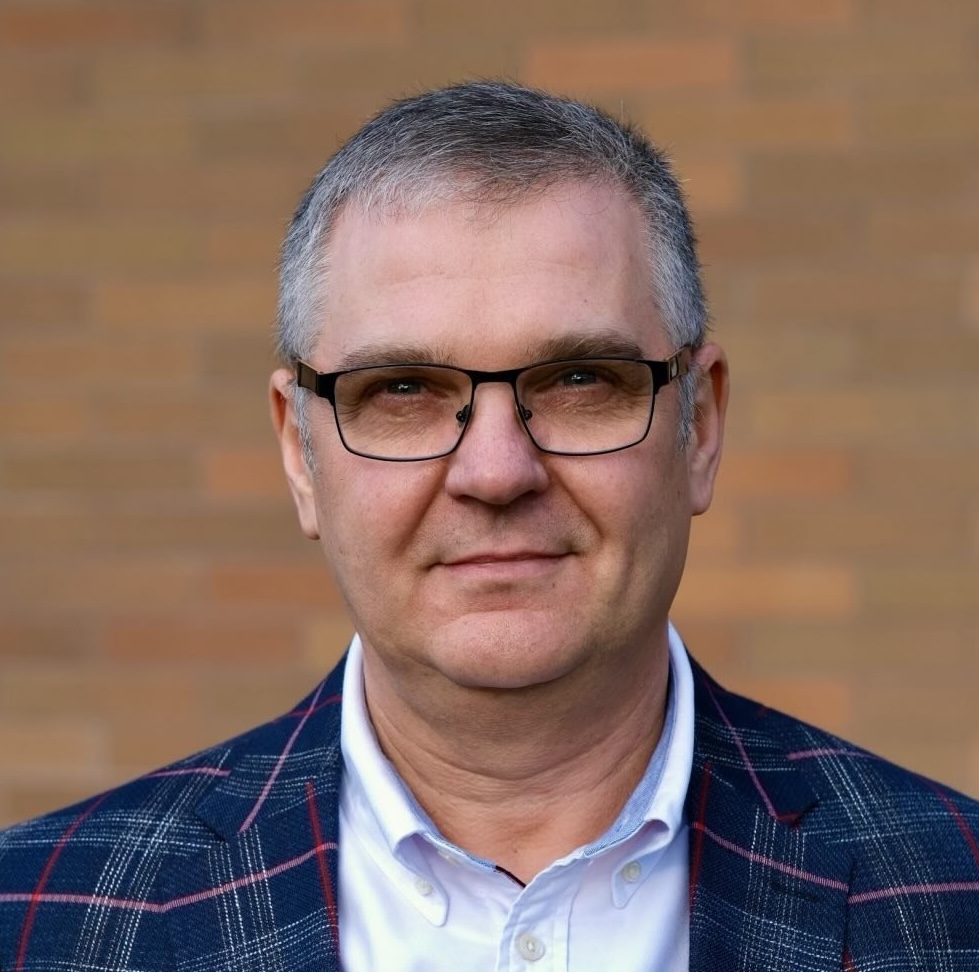
Alexander Negrov
Founder and President of Hodos Institute, leading research initiatives to shape leadership practices in the U.S. and his native Ukraine. With over 30 years of experience teaching theology and leadership, Dr Negrov is a passionate advocate for spiritual, ethical, and effective leadership. He holds a PhD in New Testament Studies from the University of Pretoria and completed advanced leadership studies at Durham, Cambridge, and Oxford. His recent books include Hodos Leadership (2025) and Leadership in Ukraine: Studies During Wartime (with Ronald E. Riggio, 2025).
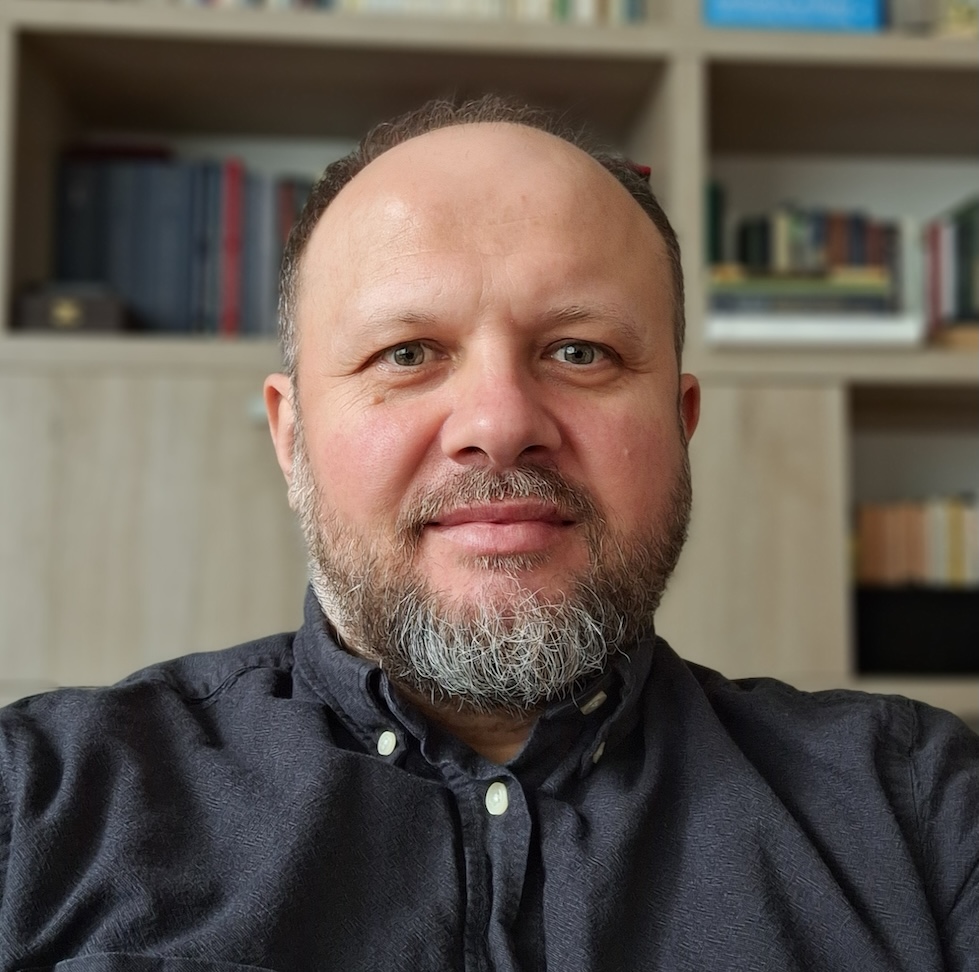
Cristian S. Sonea
Orthodox priest and professor at the Faculty of Orthodox Theology, Babeș-Bolyai University in Cluj-Napoca, where he currently serves as Head of Department. He holds a PhD in Missiology and Ecumenism and a Habilitation in Theology from the same institution, as well as a Certificate in Ecumenical Studies from the Ecumenical Institute in Bossey, Geneva. His academic research focuses on Orthodox theology, mission, and ecumenical dialogue. He serves as parish priest at St Andrew’s Church in Cluj-Napoca.
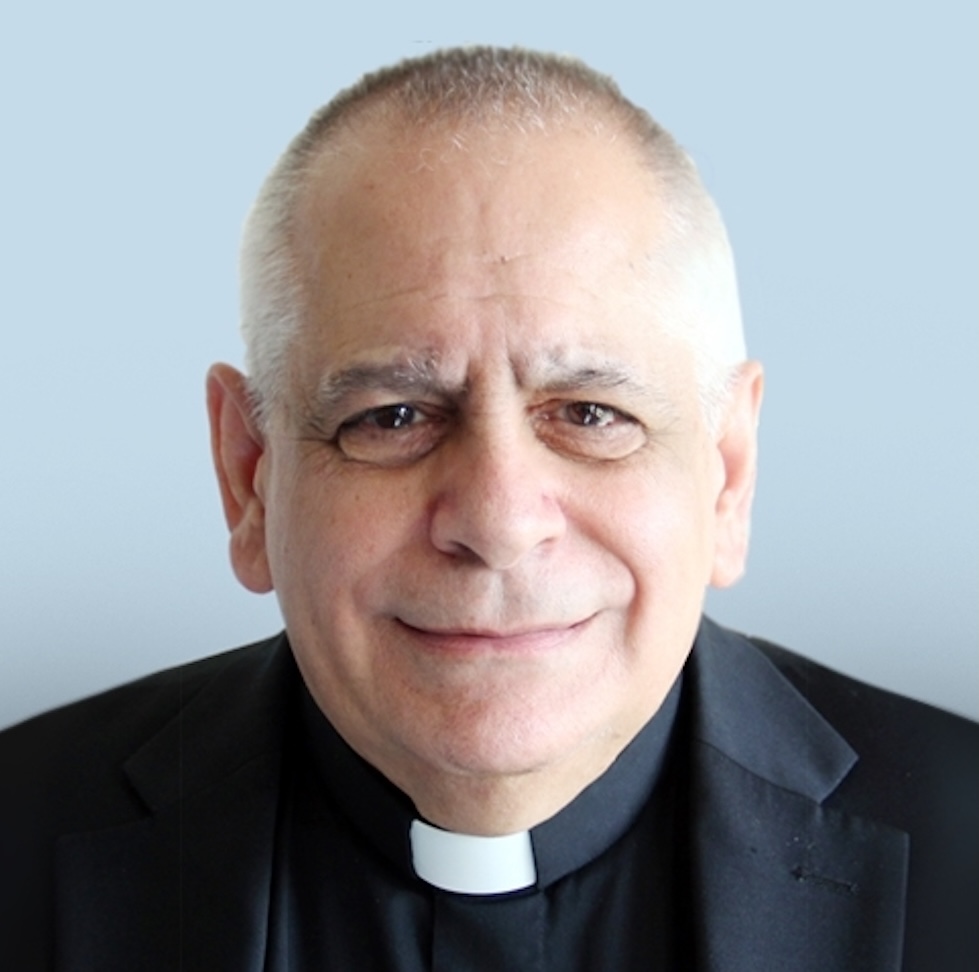
Robert J. Vitillo
Secretary general of the International Catholic Migration Commission. Msgr. Vitillo has served as the head of the Caritas Internationalis delegation and as an attaché for the Permanent Observer Mission of the Holy See to the United Nations. He completed graduate studies in theology, clinical social work, and management. A trained social worker with a broad expertise in migration and refugee services, child protection, social services, human rights, HIV/AIDS and global health.
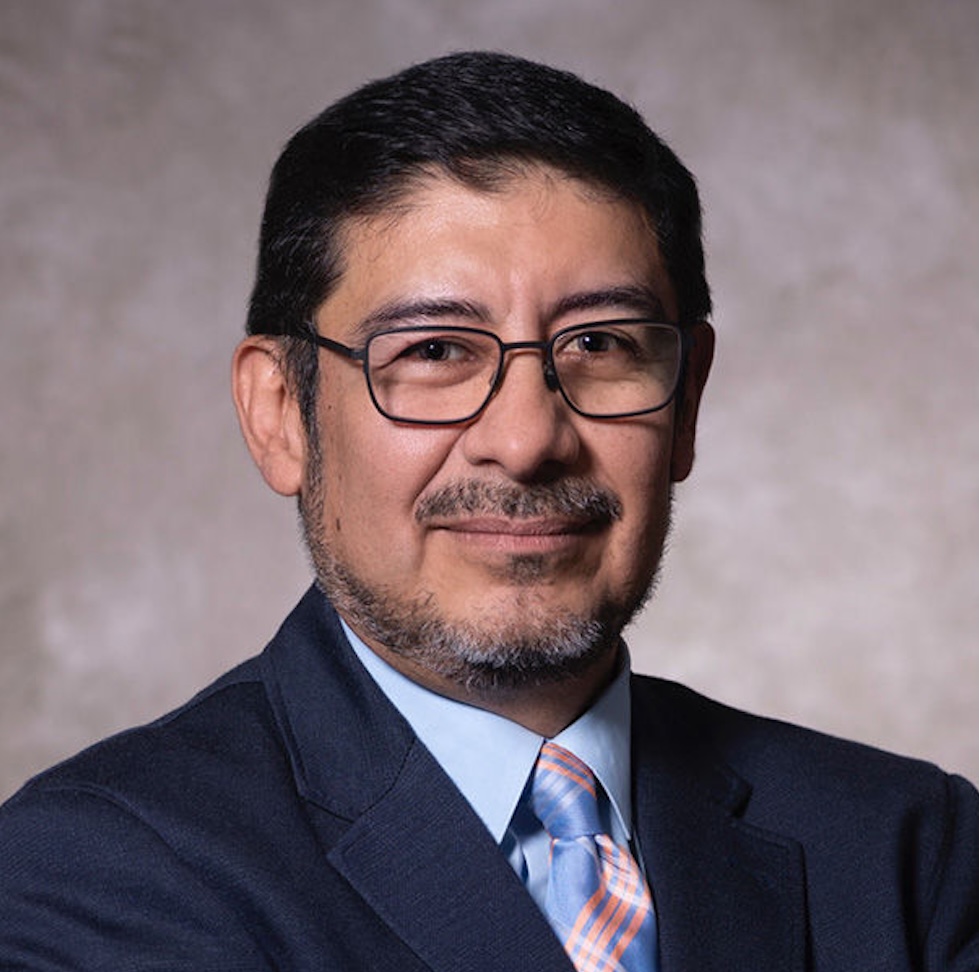
Alejandro Olayo-Méndez
Assistant Professor at the Boston College School of Social Work. He holds a DPhil in International Development and an MSc in Migration Studies from the University of Oxford, a Master of Social Work from Loyola University Chicago, and a Master of Divinity from Boston College. His areas of expertise include humanitarian aid, migration, refugee and immigration issues, social justice, human rights, and social inequality.
Moderated by
Roman Soloviy (Eastern European Institute of Theology, Ukraine; Langham Publishing, UK), Taras Dyatlik (Eastern European Institute of Theology, Ukraine; Mesa Global, ScholarLeaders), Oleksandr Geychenko (Odesa Theological Seminary, Ukraine; Eastern European Institute of Theology, Ukraine), Anatoliy Denysenko (Eastern European Institute of Theology, Ukraine), Rostislav Tkachenko (University of Cambridge, UK; Eastern European Institute of Theology, Ukraine), Stanislav Stepanchenko (Ukrainian Baptist Theological Seminary, Ukraine; Eastern European Institute of Theology, Ukraine), Slava Gerasimchuk (Odesa Theological Seminary, Ukraine), Artem Perkov (Mission "Ukraine for Christ," Ukraine), Kseniia Trofymchuk (Eastern European Institute of Theology, Ukraine).
School Videos 2025
Migrants, Refugees and Foreigners: Old Testament Perspectives and Imperatives
Speaker: Chris J. H. Wright
Language: English
Living with War and Finding Hope
Speaker: Diane Langberg
Language: English
Discovering What the Bible Has to Say about Migration
Speaker: M. Daniel Carroll R.
Language: English
Missio Dei et missio diasporæ: Ukrainian realities and challenges
Speaker: Ivan Rusyn
Language: Ukrainian
Welcoming the Stranger: A Christian Theology of Refugees and Immigration
Speaker: Barnabas Aspray
Language: English
Displacement, Migration and Missio Dei: Theological Reflections from an African Christian Perspective
Speaker: Bulus Galadima
Language: English
Leadership Perspectives Among Slavic Evangelicals in the United States
Speaker: Alexander Negrov
Language: English
Beyond Empire: the Migrant Factor in Global Christianity
Speaker: Jehu J. Hanciles
Language: English
The “Other” Displaced: Exposing Hierarchies of Hospitality Through the Experience of the Roma
Speaker: Melody Wachsmuth
Language: English
Diasporic Homelessness: Reconstituting Philosophical and Theopolitical Sites of Cosmopolitan Hospitality
Speaker: Namsoon Kang
Language: English
Catholic Response to the Needs of Displaced Persons and Refugees
Speaker: Robert J. Vitillo
Language: English
Orthodox Romanian Diaspora. Mission, Challenges, Perspectives
Speaker: Cristian S. Sonea
Language: English
Palestinian Christians in Gaza: History of Faith and Resilience in the Face of Empires
Speaker: Yousef AlKhouri
Language: English
Speaker:
Language:
Speaker:
Language:
Висловлюю щиру подяку за Літню школу теології 2025. Беручи участь вперше, хотілося сказати, що тематика міграції є особливо актуальною для українського суспільства. Багато корисного для роздумів та для втілення на практиці. Вже з першого дня виникло бажання під’єднуватися до кожної лекції, щоб нічого не пропустити. Школа зібрала чудових спікерів-богословів із різних країн. Ну і очевидним був професіоналізм організаторів. Усе було дійсно “круто” та благословенно!

Оксана Войцещук
Учасниця Школи 2025
At 72 I continue to have a passion for lifelong learning. My commitment to the promotion of the common good includes an interest in theological literacy. The EEIT Summer School 2025 provided a valuable opportunity to hear scholars from diverse disciplines present theological perspectives on displacement and diasporas. As well as watching the presentations I am now able to continue my formation in this field through ongoing connections that have been made via platforms such as LinkedIn and material provided on the EEIT Facebook page. I highly recommend the Summer School program as an excellent learning opportunity in a global online classroom.
Тоні Робертсон
Учасник Школи 2025
We encourage all participants to join our Facebook community to get more information about our speakers, lecture topics, possible changes to the schedule, and other organizational details. We do not spam with advertisements or a lot of news. After submitting a request to join the group, await approval from the administrator.
All lectures from the previous sessions of 2022, 2023 and 2024 can be found on our YouTube channel (in the original language).
Sponsored by

The work of our Institute would not be possible without your generous support and faith in our joint efforts. Your help today is a hope for the future of quality theological education in Ukraine.
